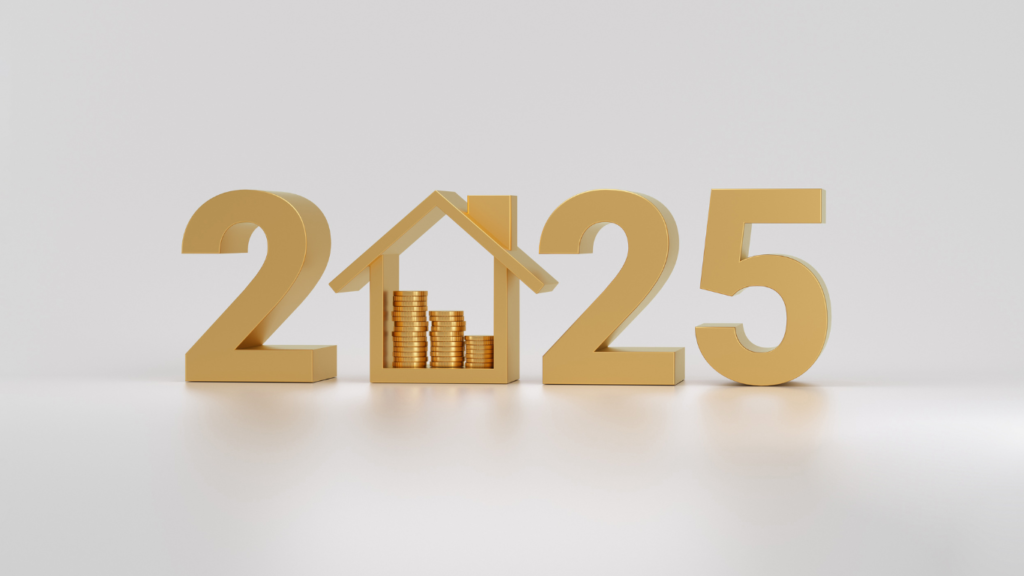Purchasing a home represents one of life’s most significant financial commitments. For most Americans, the journey to homeownership necessarily involves navigating the mortgage approval process—a multi-stage procedure that combines financial scrutiny, property evaluation, and legal documentation.
While obtaining pre-approval marks an important early milestone in this process, many prospective homebuyers find themselves wondering: how long does mortgage approval take after pre-approval? This question reflects natural anxiety about the timeline between having a tentative financing commitment and receiving final authorization to proceed with a home purchase.
The mortgage approval process following pre-approval typically takes between 30 and 45 days, though this timeline can vary significantly based on numerous factors including lender workload, borrower responsiveness, property complexities, and market conditions.
Understanding these variables and the steps involved can help borrowers set realistic expectations and potentially accelerate their path to closing. This comprehensive guide examines the entire mortgage journey with particular focus on what occurs during the critical phase between pre-approval and final approval.
Understanding Mortgage Pre-Approval
Before exploring how long mortgage approval takes after pre-approval, it’s essential to understand what pre-approval actually represents in the home financing process.
What Is Mortgage Pre-Approval?
Mortgage pre-approval constitutes a preliminary evaluation by a lender of your creditworthiness and financial capacity to repay a home loan. During this initial assessment, the lender reviews your credit history, income documentation, assets, and debt obligations to determine how much money they might be willing to lend you and under what terms. The pre-approval typically results in a conditional commitment letter stating the potential loan amount, interest rate, and other key terms.
Pre-approval differs significantly from pre-qualification, which involves a much less rigorous evaluation based primarily on self-reported information. Pre-approval requires verification of financial details and includes a hard credit inquiry, making it a more substantive indicator of your ability to secure financing.
Benefits of Mortgage Pre-Approval
Obtaining pre-approval offers several advantages:
- Clarity on budget: Pre-approval helps establish a realistic price range for your home search.
- Competitive advantage: Sellers often prefer buyers with pre-approval as it signals financial readiness.
- Expedited final approval: Having completed the preliminary evaluation can streamline the subsequent approval process.
- Identification of credit issues: Pre-approval may reveal credit problems you can address before full application.
- Rate lock opportunities: Some pre-approvals include options to lock in interest rates.
From Pre-Approval to Final Approval: The Timeline
The central question for many borrowers remains: how long does mortgage approval take after pre-approval? The answer depends on numerous variables, but understanding the typical process helps set realistic expectations.
The Standard Timeline
In most cases, the journey from pre-approval to final mortgage approval takes approximately 30-45 days. This timeline encompasses several distinct phases:
- Home selection and purchase agreement: 1-4 weeks (varies widely based on market conditions and buyer preferences)
- Loan processing: 3-5 business days
- Underwriting: 3-7 business days
- Appraisal and title work: 1-2 weeks
- Conditional approval and satisfaction of conditions: 1-2 weeks
- Final approval and closing preparation: 3-5 business days
It’s important to note that these phases often overlap rather than occurring strictly sequentially. Additionally, each stage involves potential variables that can extend or compress the overall timeline.
Factors Affecting How Long Mortgage Approval Takes After Pre-Approval
Several key factors influence the duration between pre-approval and final mortgage approval:
1. Lender Workload and Efficiency
Mortgage approval timelines fluctuate seasonally and with market conditions. During periods of high refinancing activity or strong housing markets, lenders may face application backlogs that extend processing times. Conversely, during slower periods, approval might proceed more quickly.
Different lenders also maintain different operational efficiencies. Some traditional banks may take longer to process applications than mortgage specialists or digital lenders with streamlined systems. When concerned about timeline, it’s worth asking potential lenders about their current average time from application to closing.
2. Loan Type and Complexity
The type of mortgage significantly impacts how long mortgage approval takes after pre-approval. Conventional loans typically process more quickly than government-backed options like FHA, VA, or USDA loans, which involve additional requirements and inspections. Similarly, jumbo loans or those with unusual features often require extended underwriting review.
Self-employment income, multiple properties, or complex assets can also extend the underwriting timeline as they necessitate more extensive documentation and verification.
3. Borrower Responsiveness
Perhaps surprisingly, borrower behavior represents one of the most significant variables affecting approval timelines. Delays in providing requested documentation, responding to underwriter questions, or addressing conditions can substantially extend the process. Conversely, borrowers who prepare thoroughly and respond promptly to all requests can help accelerate approval.
4. Property Issues
Property-specific challenges frequently cause delays in the mortgage approval process. Appraisal values below the purchase price, title issues, or property condition concerns may require resolution before approval can proceed. Properties with unusual characteristics or locations may also require specialized appraisals that take longer to complete.
5. Third-Party Services
The mortgage process involves numerous third parties including appraisers, title companies, insurance providers, and sometimes homeowners associations. Delays from any of these entities can extend the overall timeline. In particular, in busy markets, appraisal scheduling can become a bottleneck that affects how long mortgage approval takes after pre-approval.
The Step-by-Step Mortgage Approval Process After Pre-Approval
Understanding each phase between pre-approval and final approval helps clarify where time is spent and how the process unfolds.
1. Formal Loan Application
Once you’ve found a property and signed a purchase agreement, you’ll submit a complete mortgage application specific to that property. This transitions your pre-approval into an active application for a specific loan amount on a particular property.
Typical duration: 1-3 days
Required documents typically include:
- Signed purchase agreement
- Updated financial information (if pre-approval is more than 60 days old)
- Property details
- Confirmation of down payment funds
2. Loan Processing
During processing, a loan processor reviews your application and supporting documentation for completeness and accuracy. They organize your file for underwriting and may request additional information or clarification on certain items.
Typical duration: 3-5 business days
Key activities include:
- Verification of employment and income
- Organization of financial documents
- Preliminary review for potential issues
- Ordering of third-party services (appraisal, title search)
3. Property Appraisal
The lender orders an appraisal to verify the property’s value meets or exceeds the loan amount. This independent evaluation helps ensure the property provides adequate collateral for the mortgage.
Typical duration: 7-14 days (scheduling + report delivery)
Potential delay factors:
- High demand periods for appraisers
- Property location (rural or unique properties)
- Property access issues
- Comparable sale availability
4. Underwriting Review
The underwriter conducts a thorough evaluation of your financial profile and the property to determine whether the loan meets the lender’s criteria and any applicable secondary market requirements.
Typical duration: 3-7 business days (initial review)
Areas of assessment include:
- Credit history and scores
- Debt-to-income ratios
- Income stability and sufficiency
- Asset verification
- Property appraisal results
- Title search results
- Loan program guidelines compliance
5. Conditional Approval
Most loans receive conditional approval, meaning the underwriter has approved the loan subject to certain conditions being satisfied. This represents a significant milestone in determining how long mortgage approval takes after pre-approval, as the remaining timeline largely depends on how quickly these conditions can be addressed.
Typical duration: 1-14 days (depending on condition complexity)
Common conditions include:
- Additional documentation of income or assets
- Explanation of credit inquiries or issues
- Proof of insurance
- Resolution of title issues
- Sale of current home
- Verification of funds to close

6. Clear to Close
Once all conditions have been satisfied, the underwriter issues a “clear to close” designation, signifying final approval. The lender then prepares closing documents and coordinates with the title company or attorney managing the closing.
Typical duration: 3-5 business days
Closing preparation includes:
- Preparation of final loan documents
- Coordination with closing agents
- Generation of final closing disclosure
- Scheduling of closing appointment
Accelerating the Mortgage Approval Process
If you’re concerned about how long mortgage approval takes after pre-approval, several strategies can help minimize delays:
1. Prepare Documentation in Advance
Gather key financial documents before beginning your home search, including:
- Tax returns (2-3 years)
- W-2s and 1099s
- Pay stubs (30-60 days)
- Bank statements (2-3 months)
- Investment account statements
- Documentation of other income sources
- Identification and residency documents
2. Maintain Financial Stability During the Process
Avoid actions that might trigger additional underwriting review:
- Don’t change jobs if possible
- Avoid major purchases on credit
- Don’t open or close credit accounts
- Maintain consistent banking patterns
- Don’t make large, undocumented deposits
3. Choose Lenders Strategically
Research lender reputation for efficiency, particularly if timeline is a priority:
- Ask about current average closing times
- Consider lenders with digital processes
- Check reviews specifically mentioning timeline satisfaction
- Evaluate pre-approval thoroughness (more comprehensive initial reviews often lead to faster final approvals)
4. Respond Promptly to All Requests
Perhaps the single most effective way to shorten how long mortgage approval takes after pre-approval is to respond immediately to all lender requests:
- Set up alerts for communications from your lender
- Provide exactly what is requested in the format requested
- If uncertain about a request, ask for clarification rather than guessing
- Consider using secure electronic document delivery when available
5. Consider Lock Options Carefully
Rate locks relate directly to timeline considerations:
- Standard rate locks typically range from 30-60 days
- Longer locks usually carry higher costs
- Lock expiration can cause complications and delays
- Some lenders offer “lock and shop” programs with pre-approval
Special Circumstances Affecting Approval Timelines
Certain scenarios can significantly impact how long mortgage approval takes after pre-approval:
Construction Loans
New construction financing often involves a more complex approval process. Construction-to-permanent loans require approval of both the construction phase and the permanent mortgage, typically extending timelines by 15-30 days beyond standard mortgages.
Self-Employed Borrowers
Self-employment income verification typically requires additional documentation including business tax returns, profit and loss statements, and business bank statements. Expect underwriting to take 5-7 days longer than for traditional W-2 employees.
Jumbo Loans
High-value loans exceeding conforming limits (jumbo mortgages) usually undergo more rigorous underwriting review. These loans typically add 7-14 days to the standard approval timeline.
Government-Backed Loans
FHA, VA, and USDA loans involve additional requirements and inspections beyond conventional loans:
- FHA loans: Add 5-10 days for additional property inspections
- VA loans: Add 7-14 days for VA appraisal and eligibility verification
- USDA loans: Add 10-20 days for USDA review processes
The Current Mortgage Environment (2025)
Recent developments in the mortgage industry have introduced new variables affecting how long mortgage approval takes after pre-approval:
Technological Advancements
Digital mortgage platforms have accelerated many aspects of the application and approval process. Automated verification systems now allow instant confirmation of employment, assets, and income for many borrowers, potentially reducing approval timelines by 5-7 days compared to traditional manual verification.
Regulatory Changes
Recent regulatory adjustments have streamlined certain aspects of the mortgage process while adding complexity to others. Current requirements for closing disclosure delivery introduce a mandatory waiting period that affects the minimum possible timeline between approval and closing.
Market Conditions
The 2025 housing market continues to show regional variations in activity levels, directly impacting lender processing times. High-volume markets often experience appraisal and underwriting backlogs that can extend processing times by 7-10 days beyond averages in more balanced markets.

FAQs
How long does it take to get a mortgage after pre-approval?
After receiving pre-approval, the complete mortgage approval process typically takes 30 to 45 days, though this timeline varies based on several factors. Your lender’s current workload, the type of loan you’re seeking, and the complexity of your financial situation all influence this timeframe. The process includes formal loan application, processing, underwriting, appraisal, and addressing any conditional requirements. Your responsiveness in providing requested documentation can significantly impact how quickly approval progresses. Government-backed loans like FHA or VA typically take longer than conventional mortgages, while jumbo loans often require additional scrutiny. Market conditions and seasonal fluctuations in real estate activity may also extend or compress this timeline.
Is it common to be denied a mortgage after pre-approval?
While not extremely common, mortgage denials after pre-approval do occur in about 8% of cases. Pre-approval is conditional and based on preliminary information, with final approval contingent on further verification. Several factors can trigger denial after pre-approval: changes in your financial situation (job loss, new debt), credit score decreases, appraisal issues where the property values below the purchase price, or discovery of undisclosed financial information during underwriting. The most preventable causes involve borrower actions during the approval process, such as making large purchases, opening new credit accounts, or changing employment. To minimize this risk, maintain financial stability between pre-approval and closing, be completely transparent about your finances from the beginning, and respond promptly to all lender requests for additional documentation.
How do you know if your loan will be approved?
While no absolute guarantees exist until final approval, several positive indicators suggest your mortgage application is progressing favorably. First, a strong pre-approval based on verified documentation (not just pre-qualification) provides a solid foundation. Limited requests for additional documentation after initial submission suggests fewer concerns from underwriters. A property appraisal that matches or exceeds the purchase price removes a major potential obstacle. Regular communication from your loan officer with updates about your application status, particularly mentions of “clear to close” or “final approval,” are extremely positive signs. Low debt-to-income ratios, consistent employment history, and good credit scores significantly increase approval likelihood. Ultimately, the most reliable indicator is receiving the official “clear to close” notification from your lender.
How long does a bank take to approve a mortgage?
Banks typically take 30 to 45 days to approve a mortgage, measured from formal application submission to final approval. Traditional banks often have slightly longer timelines than dedicated mortgage lenders or digital platforms. The approval process unfolds through several stages, each with its own timeframe: initial processing (3-5 days), underwriting review (3-7 days), property appraisal (7-14 days), and addressing conditional requirements (1-14 days depending on complexity). Bank-specific factors affecting timeline include current application volume, staffing levels, and internal review procedures. Loan type significantly impacts processing time, with conventional loans typically moving faster than government-backed options. For the most accurate estimate, ask your specific bank about their current average closing times, as these fluctuate with market conditions and seasonal demands.
Conclusion: Setting Realistic Expectations
Understanding how long mortgage approval takes after pre-approval helps borrowers plan effectively for their home purchase timeline. While the standard process typically requires 30-45 days, individual circumstances can significantly extend or compress this period.
The most effective approach involves thorough preparation, careful lender selection, and responsive communication throughout the process. By anticipating information requirements and promptly addressing conditions, borrowers can help minimize delays and move more efficiently toward closing.
Remember that while pre-approval represents an important first step, it’s just the beginning of a comprehensive evaluation process. The final approval depends on property specifics, updated financial information, and market conditions at the time of application.
For those asking how long mortgage approval takes after pre-approval, the answer ultimately depends on a combination of lender practices, loan complexity, borrower responsiveness, and property characteristics. By understanding these variables and taking proactive steps to facilitate a smooth process, prospective homeowners can navigate the mortgage approval journey with confidence and realistic expectations.


